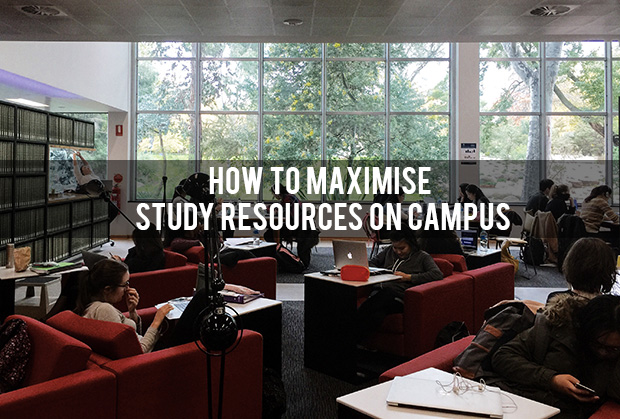Five study resources on campus all Trinity College students should know about
STUDENTS do plenty of studying at school but just how much of the campus’ resources are they really utilising? Trinity College Foundation Studies students Sunny Zhong and Teo Jing Xuan share the five on-campus resources all Trinity students should maximise the next time they cram.
Exams are an inevitable part of students’ lives yet many don’t often utilise the resources they have available on campus to their fullest potential. These resources are often overlooked but it is important to know that university students have the means to maximise their study time while on campus. This also applies to international students studying at the foundation level.
For students at Trinity College Foundation Studies, knowing which resources are available will no doubt come in handy when exam season rolls around.
Bulpadock
The Bulpadock on Trinity’s main campus is one of the most overlooked places to study at but it just so happens to be one of the best places for students to get some work done before or after class. The fresh air and lush green grass provides a pleasant change in environment, especially when you compare it to the all-white classrooms inside.
As an extra bonus, being surrounded by the greenery that surrounds the Bulpadock can also help to rejuvenate and relax students, increasing creativity and reducing stress at the same time. It is also a great place to do group work or study with friends as it is easily accessible.
Baillieu Library
If studying outdoors is not your thing, the Baillieu Library is a great place for those who seek a warm, quiet place to study. Like any good library, the Bailleau has a huge variety of books but what you might not know is that there is also a section that especially caters to Foundation Studies students that can be used to aid in research for essays.
The Bailleau is usually overlooked as most prefer to study at the Leeper Library given its closer distance to classrooms. That said, not only is the Baillieu a bigger library, it also has levels dedicated to students who want a quiet and conducive place to study.
Furthermore, it closes rather late and it is open on weekends so it’s perfect for those who want a place to study after school hours that’s nearby and for those who find it hard to concentrate in their homes.
Printer & Computer Labs
Trinity College also provides a wide range of resources that facilitate study; one of which is the computer labs located in the college’s Swanston St and Victoria St buildings. These labs are mostly overlooked due to the fact that each student has his or her own iPad but the computers available here can be used to complete essays that need to be done online or for doing research when your iPad is running low on battery.
Printers are also readily available at all computer labs and are quick, cheap and easy to use as well. Instead of going to a printing service, students can print their notes easily from the computer labs available at both buildings. Every student is also given $50 for printing, which is usually more than enough.
Teachers
Wherever you go, teachers will always be an invaluable resource to students yet according to one drama teacher, Dr Jooyeoul Ryu, students do not sufficiently use their teachers to achieve their desired results.
On many occasions, students have doubts over upcoming assessments yet rarely consult teachers to clear up those doubts. Though some international students may exhibit shy behaviour towards their tutors, it is important to know that teachers are there to help students. The tutors in Trinity are helpful and are often willing to help students clarify details and clear up any misconceptions, allowing students to have a better understanding of the topic or what they’re learning.
Discovery Search and Online Catalogue
One great feature of the Leeper Library is its online catalogue which allows students to easily locate a book. Instead of searching high and low for the book you want, you can easily locate the section and row of its location. The online catalogue also tells you which library the book can be found, either Leeper or Baillieu.
The discovery search catalogue, meanwhile, makes research for essays much easier as students only have to put in keywords and phrases into the search engine and it instantly filters out academic research papers that fit the search request. This is especially useful in EAP research essays as well as any other subject that requires academic papers to be used for research.
What other resources on campus do you think students should take advantage of? What resources are overlooked that shouldn’t be? What are some of your favourite on-campus study resources and do you agree with our suggestions? Let us know what you think in the comments below.
This story was produced by Media and Communication students at Trinity College Foundation Studies as part of Meld’s community newsroom collaboration. Education institutions, student clubs/societies and community groups interested in being involved can get in touch with us via meld@meldmagazine.com.au.






